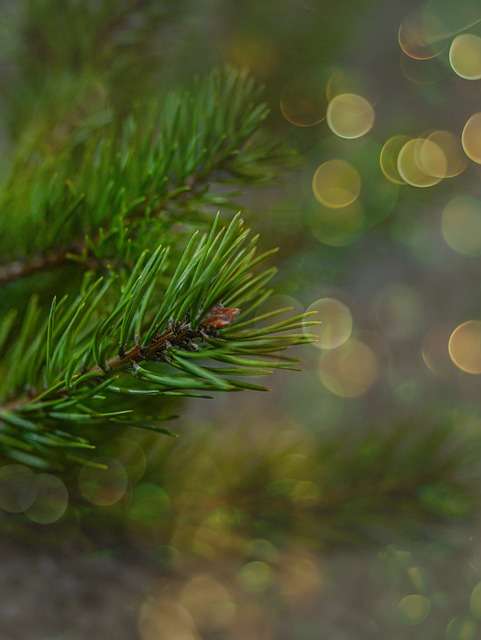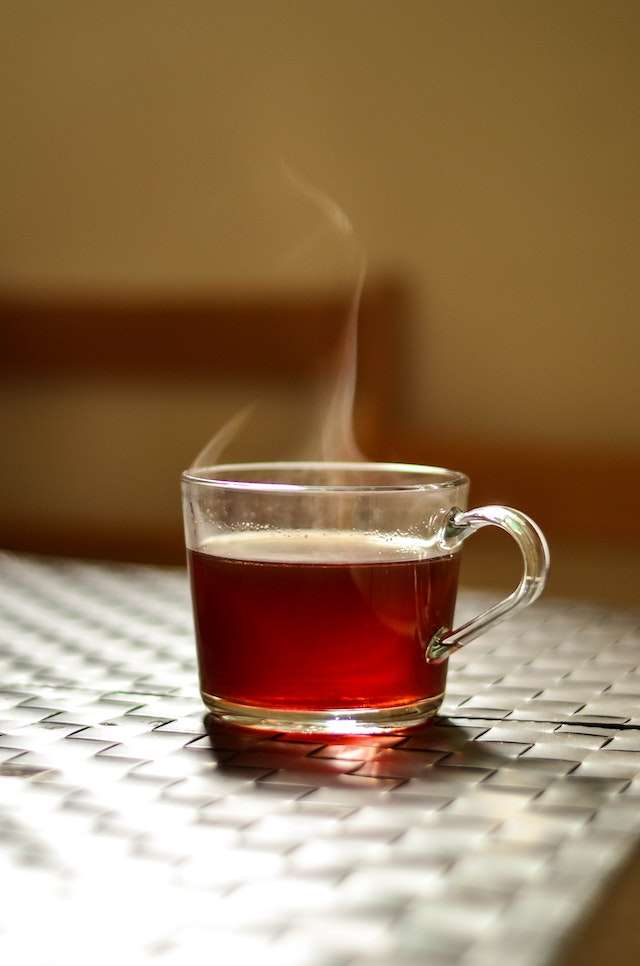Posts Tagged ‘pine needle tea benefits’

Is Pine Needle Tea Good for Diabetics
Is Pine Needle Tea Good for Diabetics
Pine needle tea is a kind of herbal tea that has been used for centuries because of its various health benefits, including its positive effects on diabetes.
We’ll go over some of the reasons why it’s so important that you know about pine needle tea and how it may help you.
Pine needle infusion has a mild, earthy taste and scent and may be prepared using a hot water infusion of fresh pine needles.
Depending on the kind of pine tree utilized, some claim that the flavor resembles that of orange juice.
Pine needle tea is often made from the needles of lodgepole pine (Pinus contorta), ponderosa pine (Pinus ponderosa), or white pine (Pinus albicaulis).
If you’re dealing with a young pine tree that hasn’t produced any cones or buds yet, you should utilize the tips of the needles (the green part).
These immature needles are richer in vitamin C than their more mature counterparts.
Needles have a limited shelf life and may lose part of their effectiveness after several uses.
Choose just the innermost needles at their point of union with the stem if you’re working with an older tree. Needles that have turned brown or are otherwise wilted should be left out of your collection.
You may buy dried pine needle tea from health food shops or online, or you can pick the needles by hand in the winter when they are most effective.
Pine needles’ health benefits stem mostly from their high vitamin and mineral content.
It has phytonutrients, which aid in detoxification and the elimination of free radicals.
Pine needle has been used as a remedy in alternative medicine for hundreds of years.
The Native Americans utilized tea to treat the common cold, flu, and sore throats, but it also had additional health advantages.
Pine Needle Tea Has Health Benefits
There are Plenty of Antioxidants.
There are several antioxidants, including vitamin C and beta-carotene, in pine needles.
In addition, they include chemicals like shikimic acid and manganese that help reduce inflammation.
These chemicals are helpful in warding off oxidative stress and cell damage caused by free radicals.
In the winter, a cup of pine needle tea is just what you need to warm yourself.
This herbal tea is beneficial for your health in many ways, including its capacity to kill cancer cells and increase blood flow.
Aids in Reducing Glucose Levels and Fat Storage.
Pine tea is beneficial for people with diabetes and other chronic conditions because it lowers blood sugar levels and prevents weight gain by lowering insulin resistance.
Enhances the Performance of the Immune System.
Heparin, an anti-inflammatory substance found in pine needles, may assist the body’s immune system naturally fight infections.
Vitamin C, von, and zinc are just a few immune-boosting vitamins and minerals found in pine needles.
According to the research, pneumonia rates are lower in locations with pine forests than those without.
Pine Needle Tea Has Been Shown to Reduce Blood Pressure.
If high blood pressure or hypertension is not controlled, it may lead to cardiovascular disease.
Pine needles reduce blood pressure through increasing blood flow and decreasing inflammation.
Its anti-inflammatory characteristics also aid in reducing cholesterol by halting the formation of plaque on arterial walls.
The Use of Pine Needle Tea May Improve Digestion
Pine needle tannins have been studied for their potential to alleviate the symptoms of gastritis, bloating, and diarrhea (stomach inflammation).
These tannins’ antiseptic qualities aid in the prevention of gastrointestinal tract bacterial infections.
Super-Rich in Vitamin A
One of the best natural sources of vitamin A is pine needles.
Pine needles have a much greater concentration of vitamin A than any other commercially available herbal tea, with 1,500 IU (150% DV) in only one cup.
Vitamin A is essential for normal eyesight, skin, and immune system function.
In addition to aiding in hormone regulation, bone health promotion, inflammation prevention, and white blood cell activity enhancement, zinc has been shown to be beneficial in the treatment of viral infections, including the common cold and the flu.
Reduces the Appearance of Scars and Acne
Acne and other skin problems may be alleviated by using pine needles to boost the immune system and fight off infections.
There are anti-inflammatory compounds called tannies in pine needles.
If you suffer from eczema or psoriasis, two inflammatory skin illnesses that may worsen when your body is under stress, this may be of particular use to you.
Protection Against Microbial Infection
Pine needle has antiviral and antibacterial properties, making them a useful treatment for cold and flu symptoms, including sore throats, runny noses, body pains, headaches, fever, and more.
It’s also good for you since it stimulates the creation of white blood cells, making you more resistant to whatever illness may come your way.
Aids in the Treatment of Bronchitis and Pneumonia
Pine tea’s antibacterial characteristics aid in the recovery from respiratory infections, including bronchitis and pneumonia, and they also help relieve congestion in the sinuses and lungs.
It’s high in vitamin C, which helps the body resist infections by increasing the formation of white blood cells.
Promotes a Hearty Circulatory System
Vitamin C, which is included in pine needles, is beneficial to cardiovascular health for a number of reasons, including its effects on cholesterol levels, inflammation, and blood clotting.
Vitamin C acts as an antioxidant to protect the body from oxidative damage caused by free radicals. Anyone concerned about preventing cardiovascular disease and stroke should consider this option.
Ingesting Pine Tea May Help Ease Anxiety and Stress
Pine needles may calm people and animals by producing a calming effect similar to chamomile tea.
Those with diseases including attention deficit hyperactivity disorder (ADHD), attention deficit hyperactivity disorder (ADD), depression, and post-traumatic stress disorder (PTSD) might benefit from this (PTSD).
Reduces Arthritis and Joint Pain
By lowering overall body inflammation, the tannins in pine needles may help alleviate joint pain and arthritic symptoms.
The tannins may also ease muscle spasms and joint stiffness.
Has Diuretic Properties
Medication, known as a diuretic, aids the kidneys in excreting excess water.
Persons suffering from edema or hypertension can benefit from this.
A Pine needle is a natural diuretic that can help the body get rid of excess fluid and reduce swelling.
Lessen the Pain of Menstruation
Vitamin C, ascorbic acid, can be found in pine needles.
Cramps during menstruation can be alleviated, and anemia from excessive menstrual blood loss can be avoided with vitamin C.
Dysmenorrhea sufferers may find relief from its role in wound healing and infection prevention (painful menstruation).
Recipe for Pine Needle Tea
Produces 3 Cups
Ingredients
- Half a cup of Eastern white pine needles, trimmed to 1/2-inch lengths (by chopping or cutting).
- Three cups of water
Instructions
- Fill a stainless steel pot all the way with water and bring it to a boil.
- Sprinkle some pine needles on top. When needles are added to boiling water, the temperature drops below the boiling point.
- Take the tea off the heat and let it steep for 15 to 20 minutes if you prefer a gentler flavor.
- If you want your tea to have more flavor, simmer it (don’t boil) for 20 minutes. The next day, uncover and let stand at room temperature or proceed to the next step and serve.
- Remove the pine needles, sweeten them to taste, and enjoy either hot or cold tea.
Notes
You shouldn’t boil the pine needles if you want to keep the vitamin C content high and stop the bitter terpenes from being released. This tea’s vitamin C content is only good for a short time, so consume it quickly.
Pine needle tea is available on Amazon if not available locally.
FAQ
Is it safe to drink pine needle tea every day?
- Pine needle tea is safe to consume daily, however, excessive use should be avoided. Start with a half cup if you’re trying it for the first time. If you’ve acclimated well to it and aren’t experiencing any negative effects, you can take it once or twice a day.
What does pine needle tea taste like?
- Flavor-wise, pine needle tea is quite mild and refreshing. Pine needles may also have a citrusy flavor, however, this depends on the specific kind.
How healthy is pine needle tea?
- Its high vitamin C content (five times that of lemons) may help with anything from sluggish circulation and exhaustion to varicose veins and heart disease. Pine needle tea’s high vitamin C content also makes it effective in warding off disease and infection.
What is the active ingredient in pine needle tea?
- A-terpineol accounts for 30.2 percent, linalool for 24.4 percent, limonene for 17.01 percent, and anethole for 14.5 percent. Caryophyllene (3.14%) and eugenol (2.14%) are the main components. The essential oil from pine needles has been shown to have powerful antioxidant properties, as measured by its ability to quench free radicals, prevent lipid peroxidation, and increase reducing power.
How many calories are in pine needle tea?
- Pine Needle Tea, it turns out, has little calorie content, which is great news for people trying to reduce their caloric consumption. Around two calories may be expected from the typical serving size.
Are pine needles healthy for the liver?
- Pinene is only one of the numerous phenolic chemicals found in pine needles. In this way, PNE might influence liver regeneration by mitigating the oxidative stress brought on by this process.
Is pine needle tea inflammatory?
- Antioxidants found in abundance in pine needle tea help prevent cancer, heart disease, and premature aging by neutralizing free radicals.
Does pine needle tea have magnesium?
- Pine needles have many health advantages; you may enjoy them in a delicious tea. Vitamins A, B, C, and D are abundant in pine needles. Moreover, they are rich in calcium, iron, and magnesium minerals.
Is pine needle tea a diuretic?
- Tea produced from pine needles has been shown to positively affect urinary health due to its diuretic qualities, just like herbal diuretics. Nutritional elements in pine needles prevent depletion from fluid loss.
Is there caffeine in pine tea?
- Yet Pine Needles Tea is not a caffeinated tea. It is completely free of it, making it a good option for those trying to limit their use.
Can I drink pine needle tea at night?
- Melatonin, which is found in pine needle tea, is a proven sleep aid. Reduce your stress levels, feel calmer, and get a good night’s sleep with its aid. Pinus radiata needles, when steeped in hot water and ingested, have characteristics that assist in reducing stress by calming the mind and body.
Is it Harmful to Drink Pine Needle Tea?
- Pine needle tea is typically safe, although it should not be eaten during pregnancy or when breastfeeding due to the risk of miscarriage.



